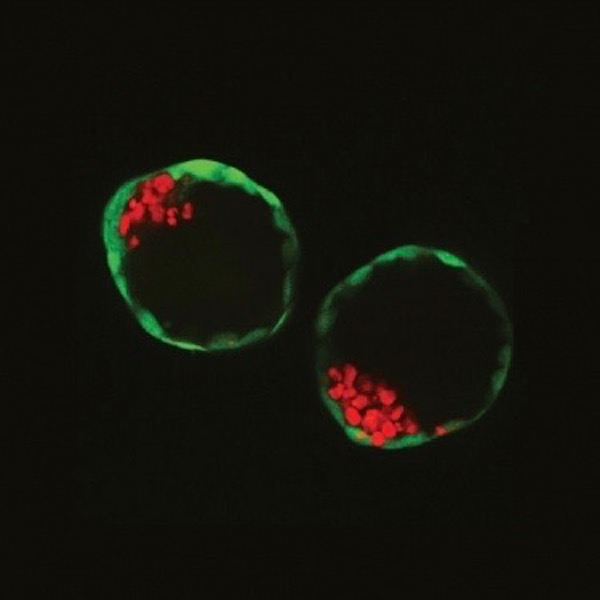
Researchers in the Netherlands have combined embryonic stem cells and early placenta stem cells, which combined to form an embryo-like structure that grew for a few days in utero. From the BBC News story:
Dr [Nicolas] Rivron told the BBC: “We can now generate extremely large numbers of these embryos and study them in detail. It could help us understand why some embryos fail to implant and let us screen for drugs that might help with fertility.”
He said there were no plans yet to repeat the results using human stem cells. That would require approval.
Prof Robin Lovell-Badge, an expert at the UK’s Francis Crick Institute, said the prospects for obtaining human embryo-like structures in this way was currently “very remote”.
“This is a pity for basic research because it would be very useful to have a limitless supply of human blastocyst-like stage embryos to understand the relevant cell-cell interactions required to make normal embryos and to study mechanisms of implantation.
Remote? From the “we never say no” Embryo Authority? I doubt it. After going through the appearance of hand-wringing, I wouldn’t expect much of a problem if scientists said they really wanted to proceed.
But here’s the thing: Here in the U.S., we don’t even have that minor impediment to anything-goes human-embryo research. While there couldn’t be government funding, creating a human artificial embryo would be fully legal — just like human cloning is. You see, that which isn’t illegal, is by definition, legal.
So, once again, biotechnological research is moving at the speed of a shooting star into Brave New World territory — and we are not responding with democratic deliberation or regulatory/legal engagement.
These technologies — including CRISPR genetic engineering techniques — are the most powerful technologies since the splitting of the atom. We can’t let policy drift or the desires of researchers determine our biotechnological future.
Photo credit: © Nicolas Rivron, via Maastricht University.
Cross-posted at The Corner.







































